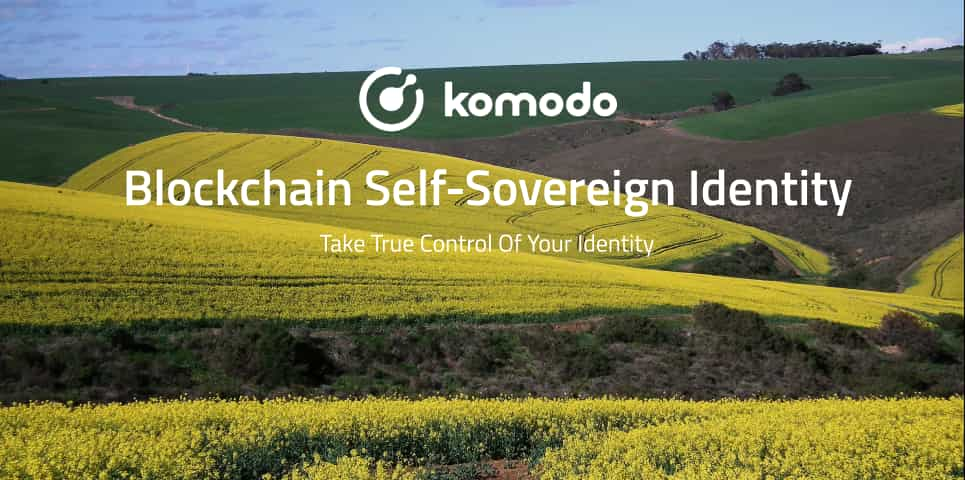Identity plays an essential role in our everyday lives. Several aspects of normal life in today’s society require people to continuously prove their identities for various reasons.
Innovation in technology, through platforms such as Google, makes it easy for businesses and individuals to set up digital identities that anyone can use on supported platforms.
However, digital identities are susceptible to online hacks and may reveal more information than intended, or put the information in the hands of malicious actors. Self-sovereign identity addresses this issue by ensuring that users only offer as much information as they would like a third party to receive, limiting information flow only to necessary partners requesting specific parameters. It creates a safe space where people do not need to worry about unwanted access to personal details.
What Is Blockchain Self-Sovereign Identity (SSI)?
Blockchain Self-Sovereign Identity (SSI) is a secure approach to online interactions that gives individuals control over their digital identities. SSI addresses the difficulty of establishing trust during an online transaction by letting users maintain personal identities and only reveal information as required. Users can allow access for identity verification when needed or withhold information as preferred. Widespread adoption of blockchain SSI will inevitably lead to a more decentralized and democratized internet.
Current Modes Of Identification
Current identification methods have many pitfalls that do not provide enough protection from security breaches like identity theft. For example, most people currently use physical IDs — issued by employers, institutions, or government agencies — as their primary means of identification. While physical IDs verify association with the government or institution of issuance, this method suffers several setbacks, including cost, validation time, bureaucratic delays, lack of privacy, and the risk of impersonation.
Non-blockchain digital IDs also have their fair share of setbacks. Many public websites now accept third-party credentials from platforms like Facebook and Google, making it more difficult to guarantee data privacy and safety. Users have little or no control over how these platforms share their personal data, and also face risks stemming from centralized data storage on online servers. In some cases, users depend on issuers like Google to verify their credentials.
How is Self-Sovereign Identity Different?
Self-Sovereign Identity has a basic structure that helps differentiate it from existing digital or physical IDs. The design ensures a highly secure digital peer-to-peer network that provides a close-knit identity validation process involving the ID issuer, verifier, and owner. The cryptographic hashing used by blockchain networks guarantees that SSI credentials are tamper-proof and issued much faster.
Technology Behind SSI
Blockchain technology plays a key role in the use of self-sovereign identity and other similar decentralized solutions. Blockchain offers a ready-made infrastructure for SSI, provides several levels of security, and encourages autonomy. SSI also relies on decentralized identifiers and verifiable credentials at its core. This approach allows users to decide the kind of data they want to be revealed, and when the particular point of said data becomes accessible.
Decentralized Identifiers
Decentralized Identifiers or DIDs are an essential part of SSI that lets users create secure peer-to-peer connections between two or more parties. DIDs can be either private or public.
Private DIDs are exchanged between two entities to establish a secure connection inaccessible to others. To avoid data overlap, each interaction requires a separate identifier. Private DIDs are only available on private blockchains.
On the other hand, public DIDs are necessary when users want to be publicly identifiable. Public identifiers are usable for government-issued identifications like international passports and driver’s licenses. This solution uses only public blockchains.
Verifiable Credentials
The adoption of verifiable credentials is another fundamental part of the SSI concept. Verifiable credentials use a digital signature for identity claims by combining public-key hashing cryptography and privacy-protection techniques to convert credentials like ID cards to digital versions. Through this method, cardholders can decide on specific details to disclose without exposing actual card information.
Public entities use digitally verifiable identity profiles or DID for user validation. These profiles store beneficiary information such as a name, date of birth, or age, on a public blockchain-based network.
When an eligible user attempts to use a social or public service, the service provider can easily authenticate the beneficiary via the DID network. The verification uses digital facilities like QR codes, which protect the user and service provider from administrative delays.
Benefits of Self-Sovereign Identities
SSI revolutionizes identity management by providing several benefits to users and service providers. Some of these benefits include:
- Security: Self-sovereign identity solutions focus primarily on user security and privacy.
- Cost-effective Staff Identification: SSI provides an economical way to improve employee identification systems for access to company resources. Service providers that use SSI solutions can cut costs by reducing administrative processes and server load.
- More Fluid Payment Solutions: SSI technology increases the processing speed used for payment solutions. Payment authentication and processing become faster since intermediaries are no longer necessary for the validation process.
- One Identity Across Multiple Systems: Users can register or apply for services across different platforms using a single unique identification with SSI.
- Improved Information Privacy: Individuals can protect sensitive personal information by choosing to share only the bare minimum.
Komodo Wallet — Regain Your Self-Sovereignty
Self-sovereign identity is the next-gen instrument for identity management. Apart from addressing the setbacks in traditional identity management systems, SSI also provides better functionality for all users. With a wide range of benefits and the increasing development of practical blockchain applications, service providers need to take a step towards the adoption of SSI solutions.
Traders and crypto holders interested in the decentralization that SSI offers can begin by using Komodo Wallet for increased control over their assets and personal information.
You own your keys, so you control your coins. Komodo Wallet supports BTC, ETH, LTC, DOGE, KMD, and thousands of assets across dozens of blockchains.

